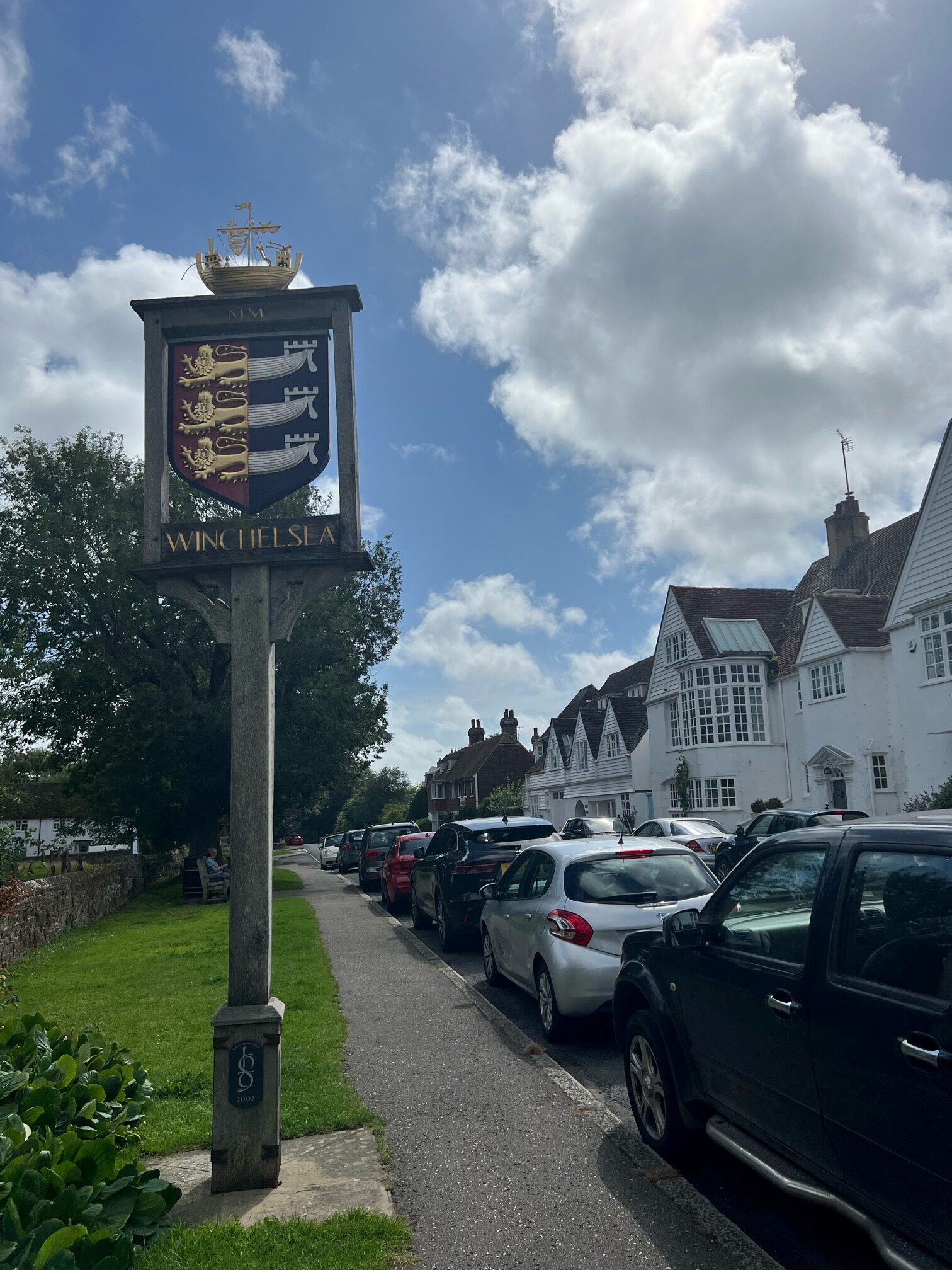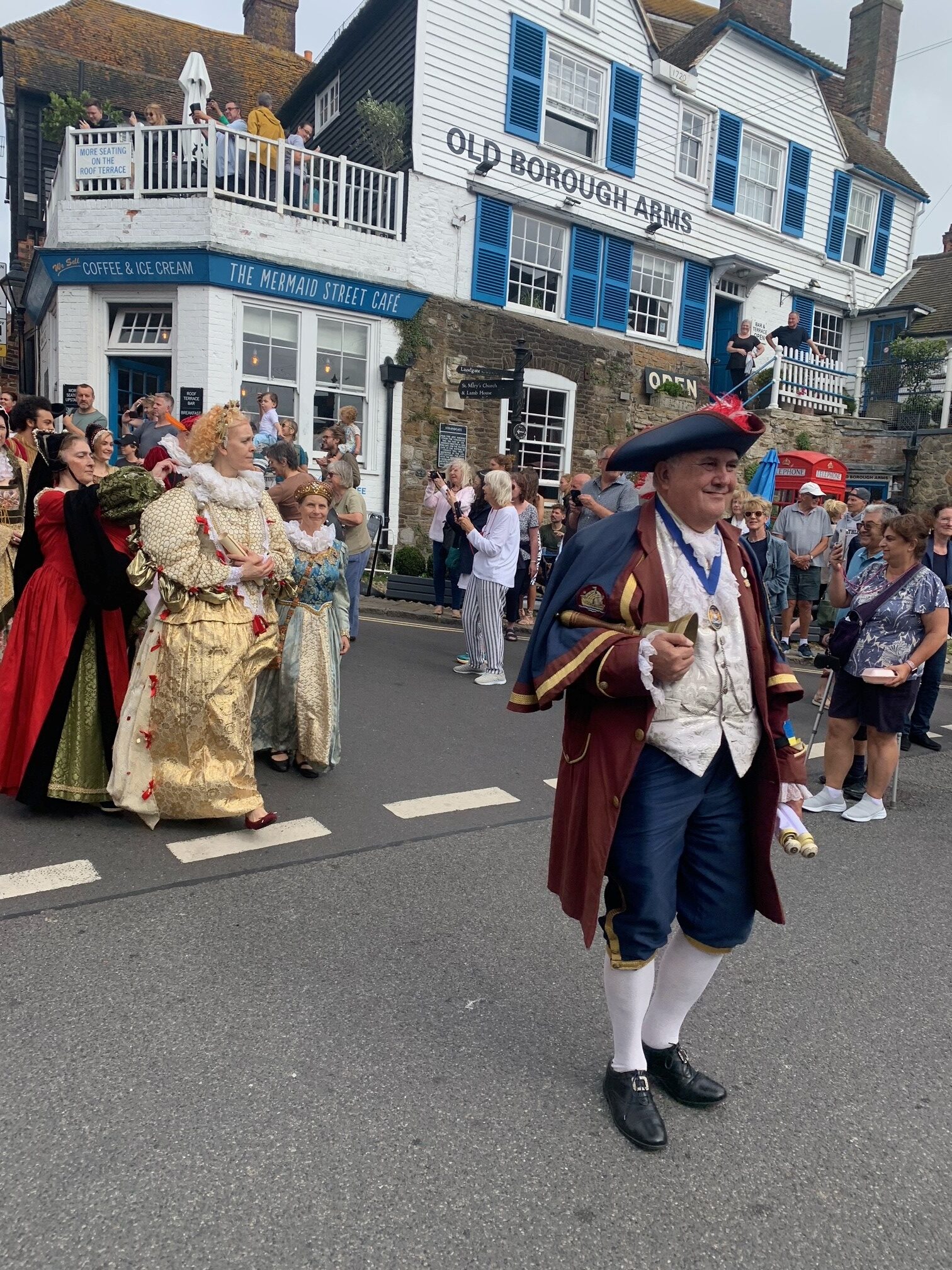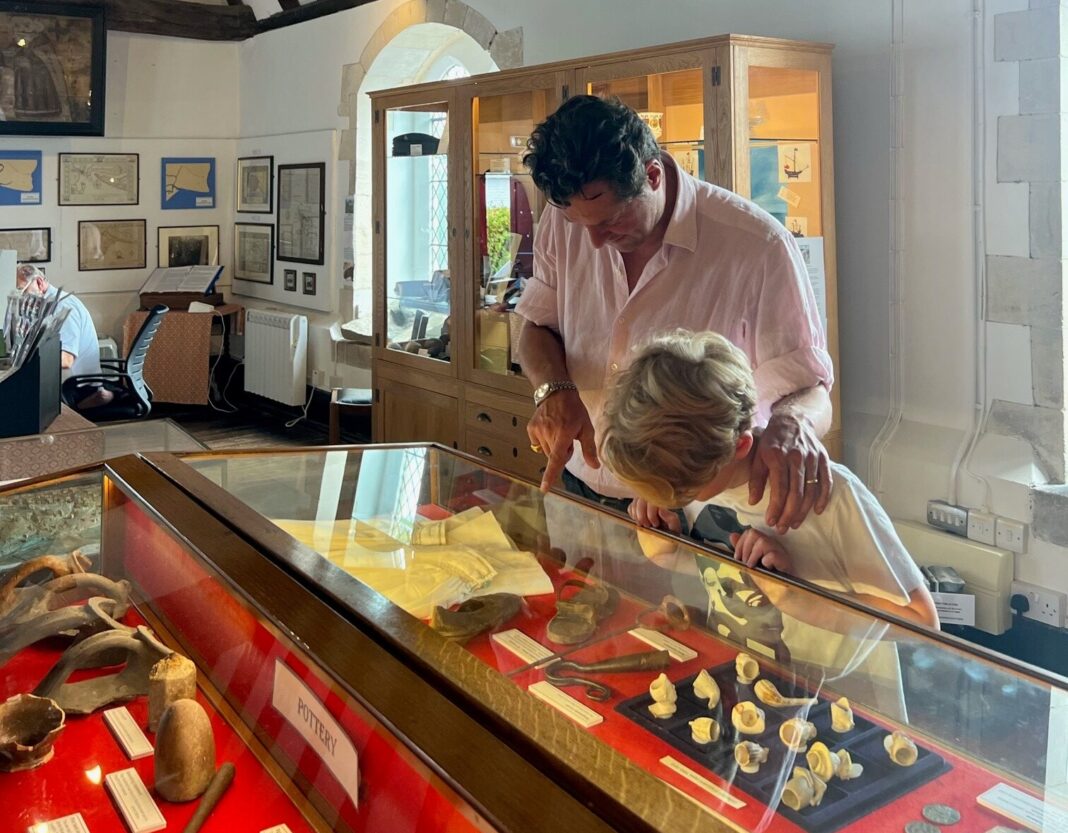On a doorstep during the district council elections, a man remarked light-heartedly to me that I “had a lot to say in Rye News“. I had to concede he had a point, and I suppose I’m honour-bound to forewarn the gentleman that thanks to editor’s judicious sense of balance, I’m going to be saying even more in Rye News in the coming months! I’m grateful to Nick Forman and the team for allowing me to complement the Labour and Conservative perspectives with my personal views as a local member of the Liberal Democrats. I’m going to try to spare you the predictable Punch and Judy antagonism and advance some different perspectives on where we are now, and where we could be…
On Saturday, August 12, I was out and about in Rye and Winchelsea. On the breezy cricket field, only the bravest were sporting their panamas this year, but not even a boisterous wind off the sea could dampen Winchelsea’s enthusiasm for the community’s annual summer fete: the music played, the sausages sizzled and the tombolas spun. The RNLI volunteers were in good spirits on their fund-raising stall, which reminded me that even though the sea has retreated from the gates of Rye and Winchelsea, coastal communities like ours have always had a weather eye on the horizon. Right now, there’s the sense of a sea change, with a general election heaving into view and events in the English Channel looming just as large in the national consciousness today as they ever have over the centuries.

Last week the Channel claimed more lives, and signalled a dismal end to the government’s optimistically titled, ‘Stop the Boats Week’. In fact, the only boat-related plan that appeared to have been stopped was that involving the Bibby Stockholm and its stowaway Legionella bacterium. By the end of the week it appeared that the government that “took back control” of immigration, had convincingly lost it. Daily migrant crossings hit a new record, and we appeared no closer to solving the issue. But I said I wouldn’t get into the Punch and Judy stuff, so I’ll shut my porthole.
Last year I gave a talk to a Home Office team, and one of the first points I sought to make was that immigration has been a contentious issue in Britain all the way back to the start of the 18th century, when Whigs and Tories took opposing positions on the plight of thousands of Palatinate German refugees who were fleeing famine and religious persecution. The writer, Daniel Defoe, championed the Whig government’s pragmatic approach to the influx of refugees, viewing them as a potential source of labour that might help revive the economy. He railed against the prevailing belief that the refugees had come to “eat the bread out of the mouths of our people.” The Tories at the time were suspicious of the foreign refugees, questioned their status and focussed on the costs. Now, it would be easy to make a sarcastic comment about how far Conservative policy has come in three hundred years (whoops, I think I just did), but the more worthwhile point is to remark, ruefully, that we’re all still arguing about the same things three hundred years later and no closer to consensus – or are we?

Tuning-out the more unpleasant notes of the debate, the Conservatives, Labour and the Lib Dems actually have fundamentally the same aims on immigration: they want to stop people trafficking and manage our borders in the national interest. Labour even conceded it might have to rely on barges like the Bibby Stockholm. But instead of being able to focus on judiciously solving the problems which vex ordinary people and constrain businesses and growth, Labour and the Conservatives are locked in an unedifying arm-wrestling contest to seduce right-leaning swing-voters and determine which direction the merry-go-round travels for the next five or so years.
As a country, we’re prevented from holding a pragmatic and efficacious conversation about migration because our political representatives and our media have no incentive to broker one. Consensus does not secure majorities in our winner-takes-all political system, and neither does it sell newspapers – confrontation does. So, the arguments loom larger than the solutions as politicians exploit our differing perspectives to segment and polarise voters and game our defunct electoral system. But what could we achieve as a nation if we focussed not on finding faults and differences, but on proper, long-term solutions we could all agree on?
After leaving Winchelsea, I headed to Rye, for the ‘Rye Royal’ procession, a celebration of Queen Elizabeth I’s visit 450 years ago. Rye had turned out, marching and drumming in time and seemingly delighting in the pageant. The town council and local voluntary groups had given their time and once again created something special.
In Tudor times, Rye and Winchelsea were strategic ports, renowned for their shipwrights and key to the defence of the realm. It’s hard to draw comparisons between then and now, but it’s true that England then faced isolation, war, social division and inflation – she also broke, Brexit-like, from Rome. However, the Virgin Queen turned the economy around, healed the country’s religious schism and defeated the Spanish navy – a threat more substantial, it seems to me, than the ‘rubber armada’ now dominating so much of our political discourse.
For me, the thing that distinguishes Elizabeth I from many of the politicians of today is that she seemed to put the country’s interest before her own or her ‘party’, the Tudors. In stating that “England would have but one mistress and no master” she effectively betrothed herself to the nation, and engendered a golden age. I don’t want to live in the past, but I do yearn for a time when our leaders put people, not partisan and personal interests first.
Image Credits: Guy Harris .




Guy – for the sake of accuracy the Elizabethan parade wasn’t a town council initiative, yes they were helpful in arranging some of the numerous permits, allowing the mayor to take part and permitting the Town Crier to wear his uniform for a personal appearance but the event was organised by Rye Heritage Centre’s ( an independent charity) with a lot of help from Rye Players, Rye In Christmas festival team and many others . The first of many ( we hope) external events engaging with the local community
Thanks for pointing that out, Simon, I appreciate it. And thanks for your part in a great event.
Nicely put….
We need to have a more collegial approach to solving our problems and a really good first step would be to promote the virtues of truth telling and honesty.
If we can confront our problems in that way, I am sure that we will also find opportunities for the optimism that is necessary to drive progress and which seems to be lacking in the current dialogue.